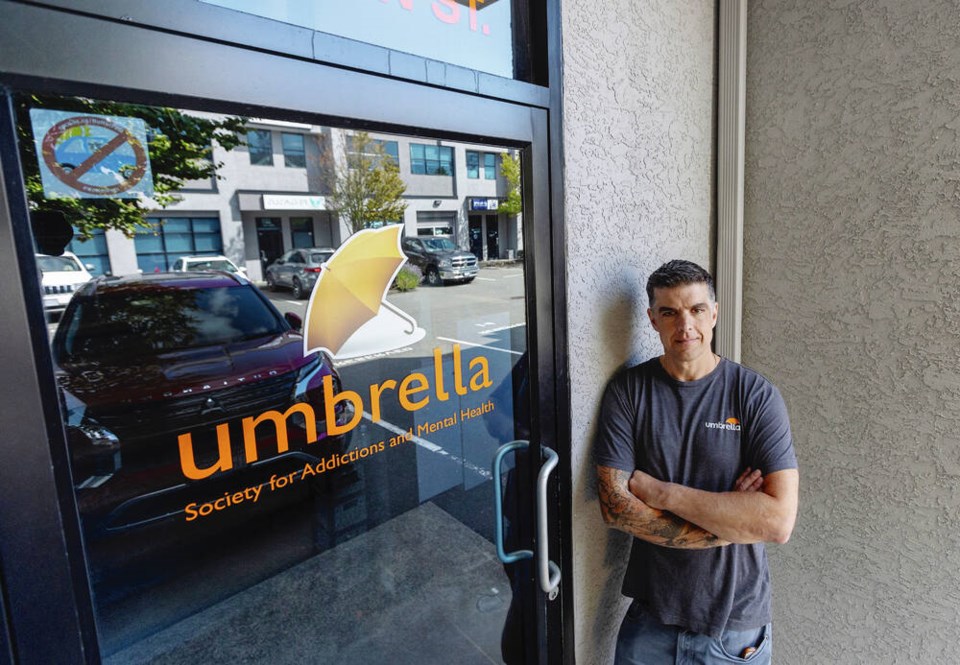The Umbrella Society, a non-profit that provides mental-health and substance-use supports to individuals, saw about 12,000 clients last year, an unexpected jump of 1,000 over the previous year.
Its 70 staff members had about 42,000 conversations with people with addictions and their families, often over coffee. Those conversations have taken on an air of urgency amid a toxic drug supply that has killed about 30,000 Canadians since 2016.
“Ten years ago, if a client died, we would gather, debrief, support the family and work through our grief. Nowadays, we have become desensitized due to the sheer number of overdose deaths,” said Evan James, manager of training and education at the society and a former addict himself. “Each person who died had friends, loved ones. Each one had hopes.”
He said the work of the society, which offers outreach, recovery housing, counselling, harm reduction and education, falls on the shoulders of staff members who have experienced substance-abuse or mental-health issues.
Some, like him, are former addicts, while others have had their lives affected by family or loved ones with addictions.
That gives the organization, which has been around for 22 years, the street cred to form connections and trust with addicts. “We walk alongside addicts. We support them, helping them with their addictions,” said James. “We meet them where they are at on their journey and provide them with the support they need to achieve their personal goals.”
One of his primary goals is to remove the stigma surrounding addiction.
“Addiction is a non-discriminatory disease,” said James, 42. “It affects the young and old, wealthy or poor.”
The society has opened transitional housing, offering its Housing Overdose Prevention Peer Support model, which provides support and addiction resources, along with training and education.
Umbrella Society houses have a different approach than other transition houses.
When a resident relapses in other houses, they are usually expelled. At the Umbrella Society, it’s the opposite.
“We actually ramp up the amount of support we give people when they are at their lowest,” said James, who has been clean for 13 years. “We know that detox treatment is not a one-size-fits-all and we want to give them a safe and supportive environment for their recovery — with no time frame.”
He credits the Victoria Foundation for enabling the society to do its work, with funding “from the beginning.”
While the larger number of people seeking help is cause for concern, James and the rest of the counsellors take comfort in those they have successfully re-integrated into society in the last two decades. “The public doesn’t usually hear about them. The successful ones just fade back into society.”
The society plans to highlight its successes with a campaign featuring past clients in September, during National Recovery Month, when those who provide prevention, treatment and recovery programs celebrate their achievements.
For more information, go to umbrellasociety.ca.
>>> To comment on this article, write a letter to the editor: [email protected]



